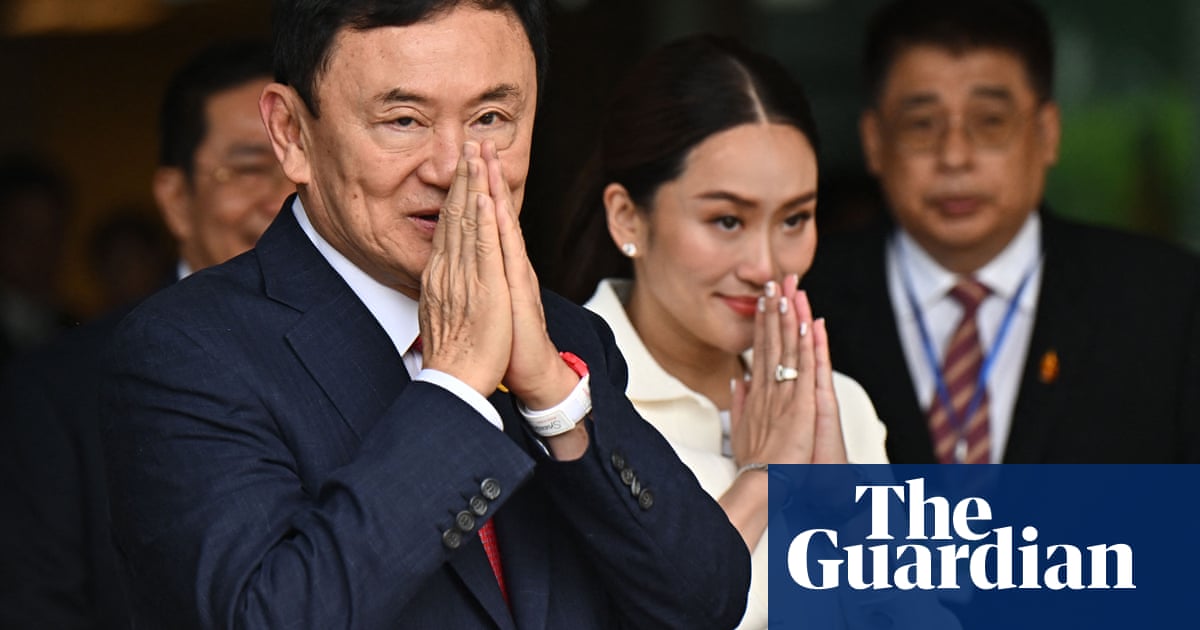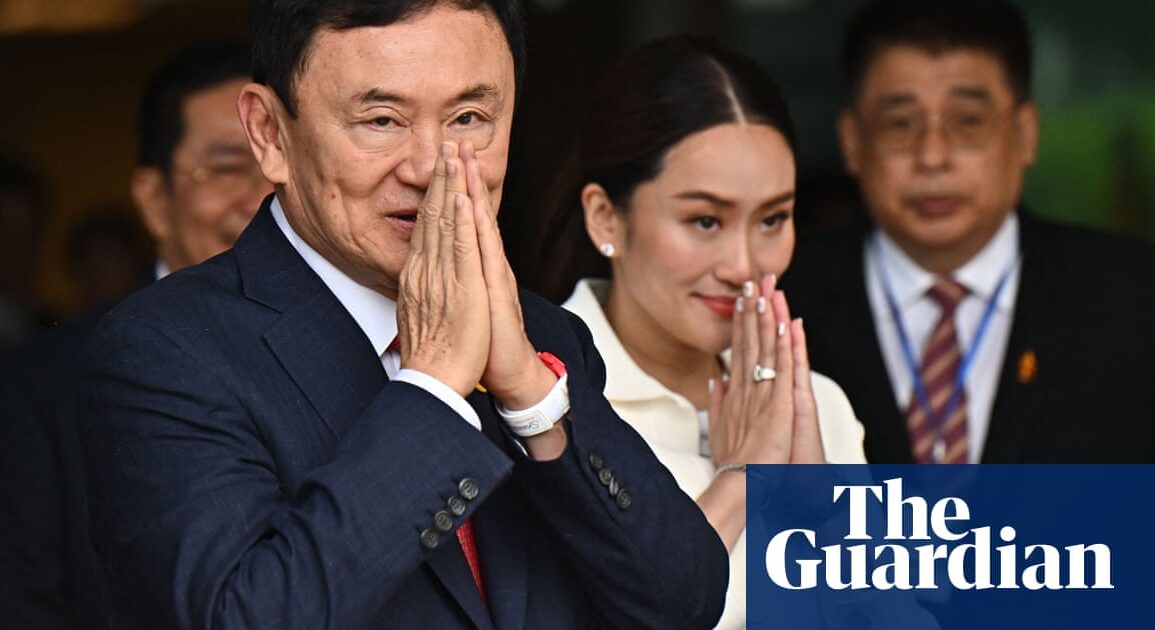
Thailand’s imprisoned former leader Thaksin Shinawatra was moved to a hospital in the early hours of Wednesday, the day after he returned from exile, due to concerns over his health, police said.
Thaksin, 74, was transferred to hospital at 1am during his first night in prison serving an eight-year sentence, officials said. He was experiencing insomnia, chest tightness, high blood pressure and the oxygen levels in his fingertips were low, according to a statement from the Department of Corrections.
“Due to a lack of proper medical equipment, the doctor believed that there could be a risk to life. Therefore, they agreed to transfer the patient to the Police hospital, which is better equipped,” the department said.
Thaksin flew to Bangkok from Singapore on Tuesday morning, after spending more than 15 years in self-imposed exile to avoid prison. A hugely influential politician in Thailand, he was ousted in a coup in 2006 and convicted in absentia for corruption, a charge he has said was politically motivated.
Thaksin’s arrival back in Thailand coincided with the return of his Pheu Thai party to office, after it struck a controversial deal with his longstanding enemies in military-aligned parties, pushing the most popular reformist party into opposition. There has been widespread speculation that Thaksin has probably struck a political deal that would allow him to avoid the worst of jail.
Thaksin was previously being held in a medical ward of Bangkok remand prison and monitored closely. Officials had described him as being in the vulnerable category of prisoners, and said a medical checkup on Tuesday had found that he had heart and lung problems, high blood pressure and spine problems.
A statement from the Thai Royal Police said that a prison doctor examined Thaksin and found that he needed an “urgent transfer” to hospital.
On social media, news of Thaksin’s hospitalisation drew a mixed reaction. Some expressed concern, while others mocked the former leader, suggesting that he was being given special treatment in hospital and hoping for a royal pardon. On the social media platform X, formerly known as Twitter, the term “VVIP” was trending.
The conditions inside Thai prisons are notoriously bleak, with former inmates and rights groups citing overcrowding and limited access to medical care.
Soponrat Singhajar, a senior doctor at the hospital, rejected the notion that he was being treated differently from other prisoners, telling local media that the room in which he was staying was once a Covid quarantine room, and that the air conditioning was broken. “Please don’t call it a VIP room,” he said.
Soponrat added that Thaksin had improved on Wednesday morning, but that his oxygen levels were still low and that he was still wearing a mask. He was given an IV drip on Tuesday night, he said.
“He doesn’t request anything. He could barely talk,” Soponrat said.
Thaksin was eligible to apply for a royal pardon during his first day in jail, in accordance with existing rules for convicts. It is possible that medical reasons could be cited as a reason for allowing greater leniency.
Hundreds of Thaksin’s supporters, mainly older voters, travelled to the airport to welcome him on Tuesday. But on social media, many have reacted with anger and cynicism, accusing Thaksin of undermining their votes, and his party’s purported values, for his own benefit, in the wake of the political deal that was struck.
Pheu Thai say they had no choice but to form an alliance with military parties, because Thailand’s electoral rules, rewritten after the 2014 coup, make it near impossible for their candidate, Srettha Thavisin, to take office without backing from the military-royalists.
On Wednesday evening, in a national televised address after he was endorsed by Thailand’s king as prime minister, Srettha promised to “work diligently” to address the challenges facing the country and “to make Thailand a country of hope for young generation, a happy country for every generation, a country with honor on the international stage again”.
Srettha said he would “build a society that respects diverse identity, thoughts and respect the regulations and law”.
After Srettha won enough votes in parliament, the hashtag “NotMyPM” was shared widely on social media, with people instead voicing support for the leader of Move Forward, which won the most seats and votes. Move Forward was the only party to support reforming the lese majesty law, under which criticism of the monarchy can lead to 15 years in prison, but was blocked by the military-appointed senate.
Pheu Thai’s new alliance excludes Move Forward, and instead features parties associated with the generals who led the coup in 2014 and who were resoundingly rejected in May’s election.
Junya Yimprasert, an activist who lives in exile due to her criticisms of the monarchy, noted as Thaksin returned to Thailand that many political refugees long for home – missing their family and friends, the food and the familiarity of their country. “But we’re not willing to trade our honour and abandon our ideals just to get back home,” she said.
This post was originally published on this site be sure to check out more of their content.







